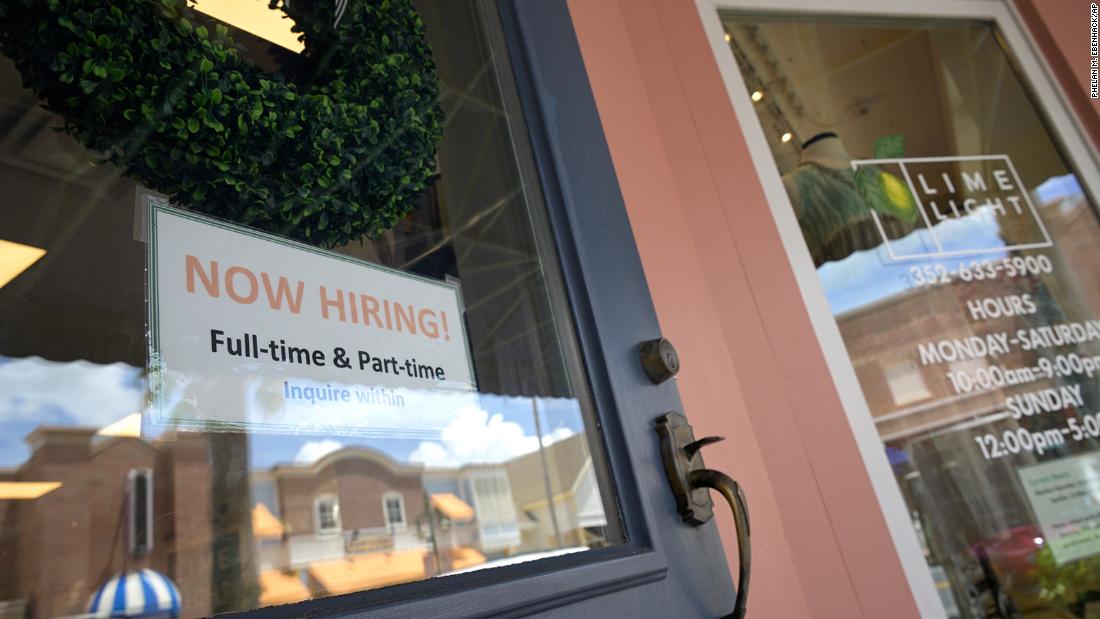
(CNN Business)Small business sentiment improved in August but remains depressed as business owners face an uncertain economic landscape.
Buoyed by marginally better expectations in the near term and a slight reduction in inflation worries, the monthly Small Business Optimism Index from the National Federation of Independent Business rose to 91.8 last month from 89.9, although it marked the eighth consecutive month during which optimism fell below the survey's five-decade average.
The share of business owners expecting better business conditions over the next six months was a still-downbeat -42%, albeit an improvement over the dismal -52% reading in July.
Inflation persists on Main Street
Business owners reported that inflation remained their most significant impediment, with 29% naming it as their biggest operational challenge, down from 37% in July.
Just trailing inflation as the most pressing problem facing small business owners was labor quality, which 26% cited as their top issue, while an additional 10% said labor costs were their top business problem.
On Tuesday, the latest Consumer Price Index inflation report showed prices rose on a month-to-month basis instead of falling as anticipated, and core inflation that backs out volatile food and energy prices jumped by twice what economists had predicted.
NFIB chief economist Bill Dunkelberg said he wasn't surprised to see higher-than-expected inflation numbers for August. "We still have a very, very high percentage of owners on Main Street raising prices. Most of our GDP is sold on Main Street," he said.
"Sure, gas prices have come down, but they're not the only thing that drives the inflation numbers... Everything else was more expensive," Dunkelberg said.
Lisa Smith, managing partner for the Offices at Spenryn, a coworking space in the suburbs of Huntsville, Alabama, said: "My utility bill was literally double this month. I have to find ways to more effectively use my cash flow."
Smith said she already raised wages for her two part-time and two full-time employees in an effort to retain them. "I have fantastic employees and I don't want to lose them," she said. "Their expenses have increased too. It costs them more to put fuel in the tank to come to work."
So far, Smith said she has been able to avoid hiking the amount she charges the people who rent her office space by the day, month or year, but she said she is trying to build up a cash cushion just in case.
"I am the eternal optimist, [but] if we go into winter and Covid 4.0 hits us, I want to be able to pay my employees," she told CNN Business.
Demand for workers holds steady — for now
Even as big companies like Snap and Wayfair have announced plans to cut hundreds of jobs, small businesses are still doggedly pursuing candidates to fill open positions, said Jason Greenberg, head economist at Homebase small-business software provider. "It still remains a relatively difficult time for small-business hiring," he said.
Unlike big companies, which hire in anticipation of scaling up their operations, small businesses can only afford to hire when they actively need workers, said Sinem Buber, lead economist at jobs site ZipRecruiter. "They are still trying to catch up with their hiring needs of the past two years."
"They're hiring for their needs right now... I think that's one of the reasons we're going to see that hiring need remain strong for the next couple of months," she said.
Pushing forward amid vulnerability
"I've got big goals... I'm just pushing forward and trying to find those right employees who are ready to hustle just as much as I am," said Betty Zogg, owner of a beauty salon in Wichita, Kansas, who added that she is optimistic for the long term. "I have goals to expand my salon within the next year."
Zogg said she increased what she pays her seven employees "quite significantly," but to cover the pay hike as well as increased costs of supplies, equipment and utilities, she also had to raise prices, which has prompted some customers to cut back.
"It's causing people to not come in as often, and they're going longer between appointments because they have to save up a little bit more," she said. "They're not getting as many services done."
Although there are more than 11 million unfilled job openings in the US economy today, the longer inflation continues to extract a toll from small businesses and the customers they serve, the more vulnerable this driver of economic momentum becomes.
"We certainly see wage inflation... It's increasing, albeit at a declining rate," Greenberg said.
Dunkelberg said his members are already observing a feedback loop of rising wages and higher prices — a dangerous spiral the Federal Reserve is trying to short-circuit with aggressive interest-rate hikes.
The stakes are high, economists warn. "When we look at job openings... 90% of job openings are at small businesses," Buber said. If these mom-and-pop employers retrench, she added, "It will be a major problem... The implications will be for the entire economy, not just small businesses."
"about" - Google News
September 14, 2022 at 05:26AM
https://ift.tt/6ZMdRp2
Small businesses are feeling slightly better about inflation - CNN
"about" - Google News
https://ift.tt/NZmChVn
Bagikan Berita Ini














0 Response to "Small businesses are feeling slightly better about inflation - CNN"
Post a Comment